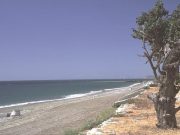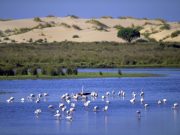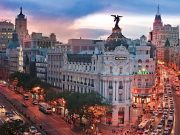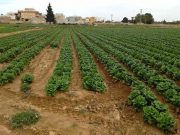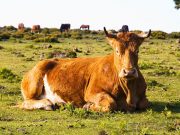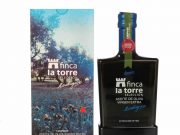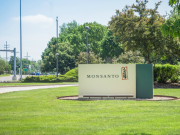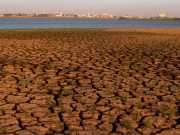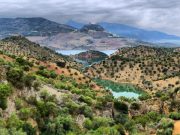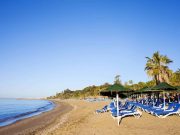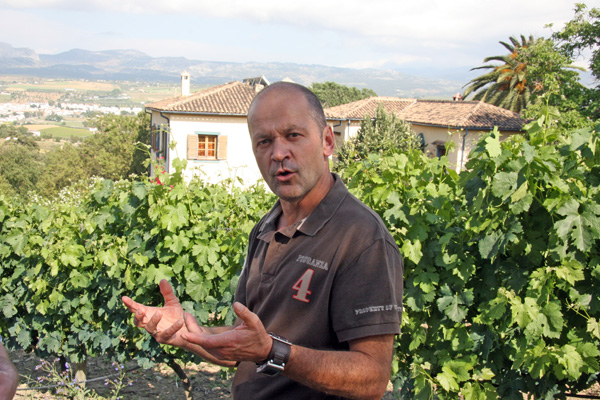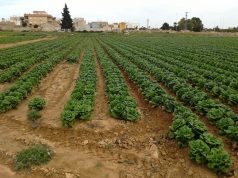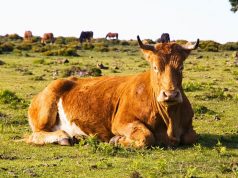By Jon Clarke
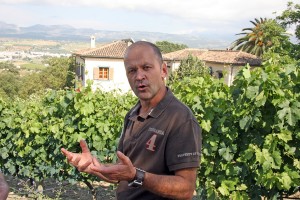
WHEN architect Martin Kieninger decided to plant a vineyard at his stunning smallholding near Ronda, it could only ever have been an organic one.
Having spent the best part of two decades working as a sustainable architect, campaigning for the environment and minimising his carbon footprint, he could hardly start bombing his vines with pesticides.
“I have always been organic and could never imagine being otherwise,” explains the softly spoken Austrian, at his five hectare estate, which counts its own natural reed pool and 100 species of trees.
“The difference in taste is obvious and the way things are in society right now, going organic and planting small is the future.”
Indeed the month that he bought the estate in 2000 he had it registered as organic and he is also now practically biodynamic – meaning that he picks and plants the vines according to the moon cycle.
“There is no doubt that more and more wine makers are going to go organic over the next few years. It is the future of agriculture.”
Things are certainly going this way in the burgeoning wine industry around the Serrania de Ronda.
Of 20-odd vineyards, around half a dozen are either registered as organic, or approaching it.
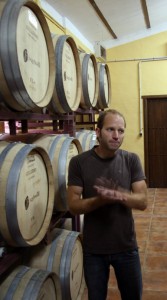
One of the best known, Bodega Joaquin Fernandez, has been organic since planting 11 years ago.
Its current winemaker Juan Bernal, 31, who learnt his trade in Bordeaux, believes the altitude of the area is perfect for organic wines, particularly grape varieties like Garnacha.
“The amount of wind we get also helps against botritis and other viruses,” he explains. “And helps the grapes to mature and keeps them healthy right up to harvest time.”
To enhance the natural ecoystem, the vines are planted near olives and oak trees and aromatic plants such as rosemary and lavender are installed alongside.
It took three years for the estate to arrive at an equilibirium, and even then there is always something to worry about.
Continues Bernal: “The beauty of organic farming is that most bugs and pests are kept in check by their natural predators.
“It is a painstaking task that takes years to get right. And even then you have to closely monitor everything all the time to maintain the delicate equilibrium between fauna and flora.
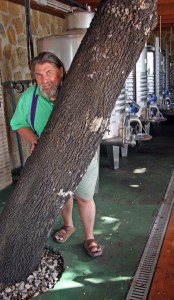
At Enkvist vineyard in Gaucin, Swedish winemaker Karl Rickard Enkvist has created a true shangri-la which truly blends in with the natural ecosystem, even including oak trees on his winery.
Again, working hard to have his wines certified as organic, he and his wife have battled against all the odds to produce
what is Spain’s most southern red wine, a real humdinger, with deep complexity.
Also producing a wonderful sweet moscatel and a chardonnay, the bottles and marketing has a distinct style.
Back in Ronda, you will also find the very capable Federico Schatz, a German, who has been experimenting with organic agriculture in the area since the early 1990s.
He is a joy to visit, not just because he has around a dozen different wines, but because he can show you his industry-strength solar panels and the highest concentration of birds nests – all thanks to the organic ecosystem – anywhere in Andalucia.
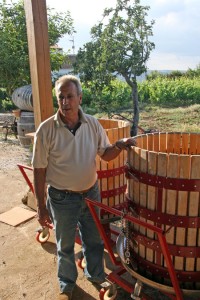
Last, but not least, you might want to visit the vineyard of Vetas, a true boutique winery of just two hectares. Using no pesticides and leaning towards being biodynamic, its owner Juan Manuel Vetas is a true grafter embodying the spirit of local,
sustainable industry. And rumour has it that his wine, which already gets 93 in the Spanish Penin guide, was also tried by the celebrated US critic Robert Parker last year. “It was my 2002 and he thought it was a top Bordeaux apparently,”
says Vetas.
With that kind of comment the future must be green, for Ronda wines at least.






